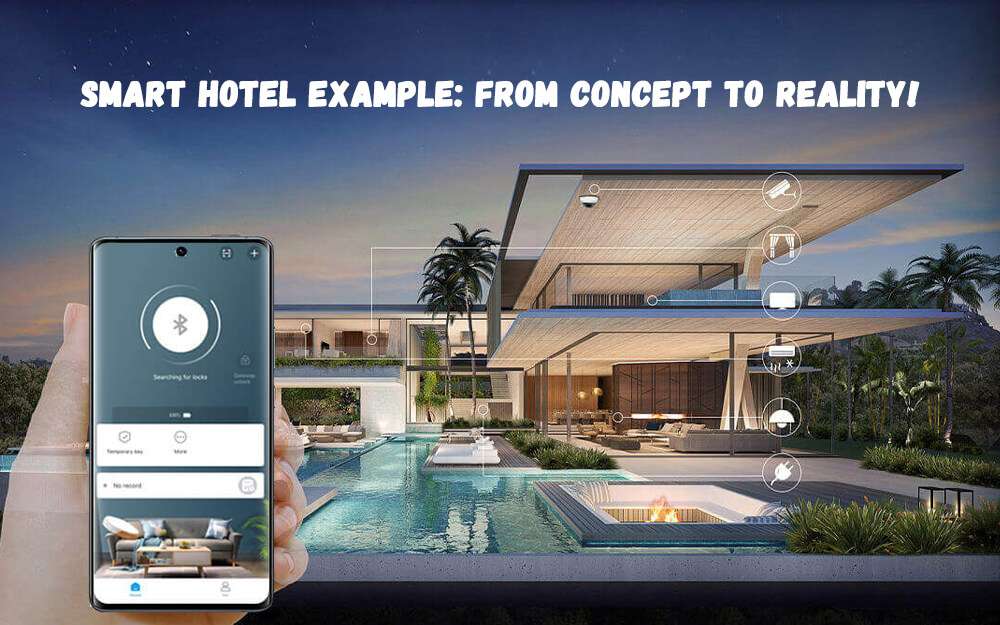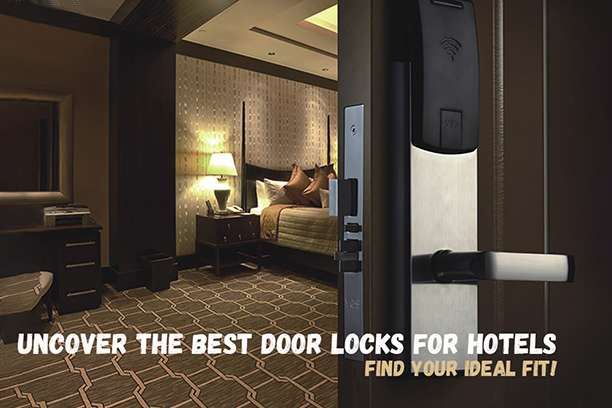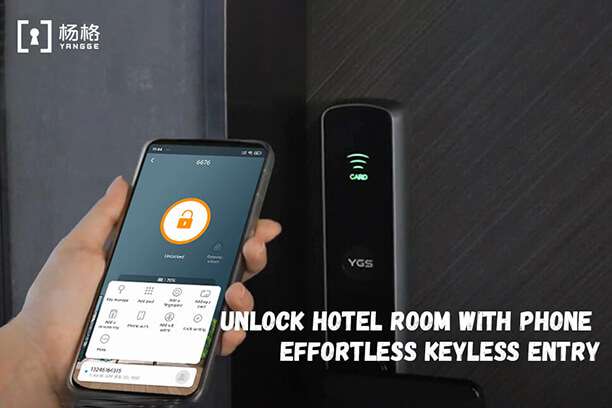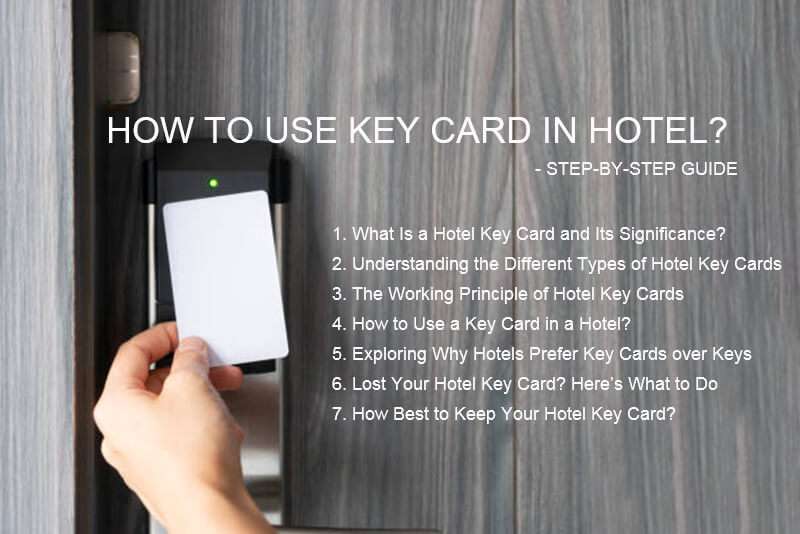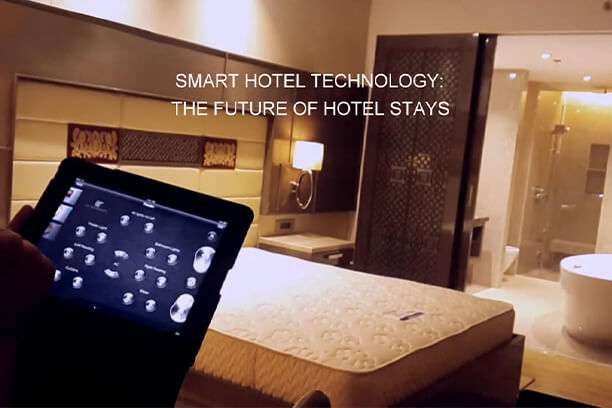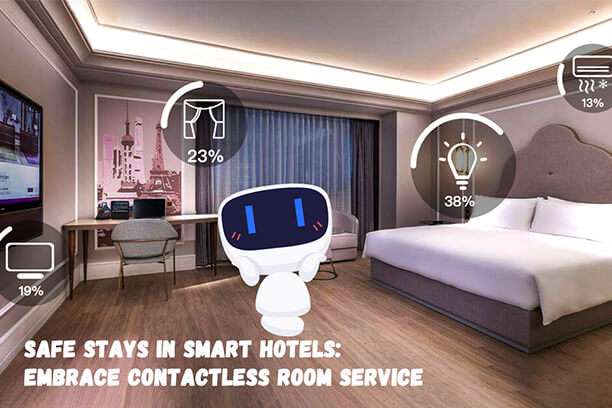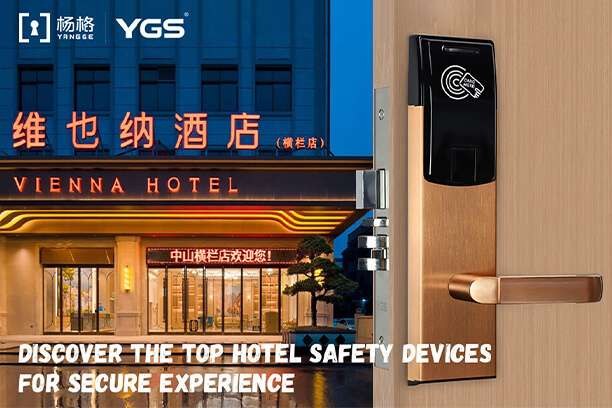Here, we will continue to explore smart hotels. What’s different this time is that we will provide a more detailed explanation of how smart hotels operate. And reveal how they demonstrate their intelligence in every interaction with guests. Additionally, we will witness the process of smart hotels evolving from concept to reality through real-life smart hotel example.
As time has passed, the dominant force in the consumer market has clearly shifted. Gradually transitioning from the post-80s generation to the post-90s and post-00s generations. Influenced profoundly by the digital era and changes in lifestyle, this generation places a greater emphasis on high quality, high technology, high security, and high convenience.
With the rise of high-tech innovations such as the Internet of Things, big data, and artificial intelligence, smart hotels emerged. They present novel, efficient, convenient, smart characteristics, perfectly catering to the demands of modern social life. Deeply loved by modern people, and generally becoming the future trend of the hotel industry.
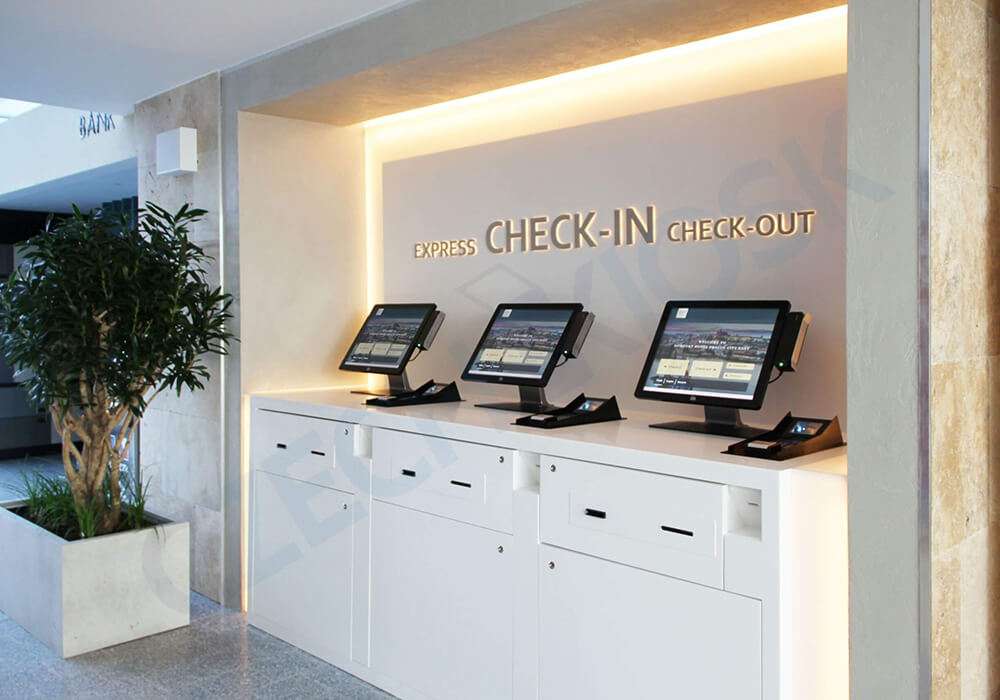
Step 1: Self-Service Kiosks For Hotel Check-in
Upon entering the hotel, guests have one more choice to check-in in addition to the traditional front desk with hotel staff.
They can use self-service kiosks, verify their ID in different devices, pay contactlessly, register their face/code/fingerprint/card/APP key to open the doors. This is a big help to avoid long and boring queues for customers.
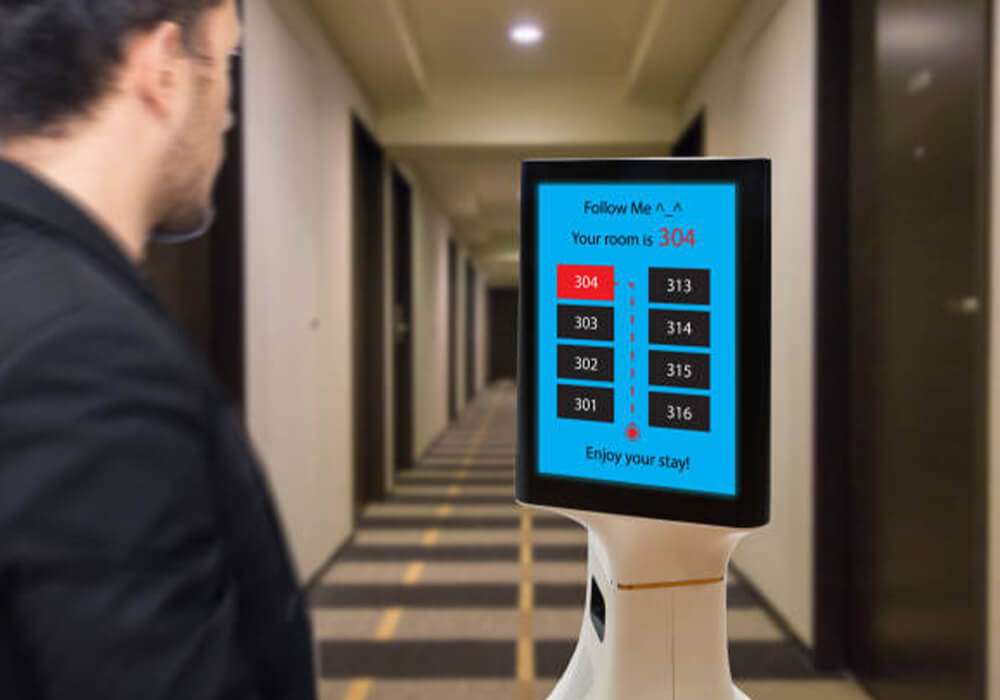
Step 2: AI Robots Guide Guests to Their Rooms
After a successful check-in, the robot automatically guides guests to their reserved rooms.
Upon arrival at the room, there’s no need to swipe a keycard; instead, guests can unlock the door with a single click on their smartphones. This entire process is unmanned service and contactless.
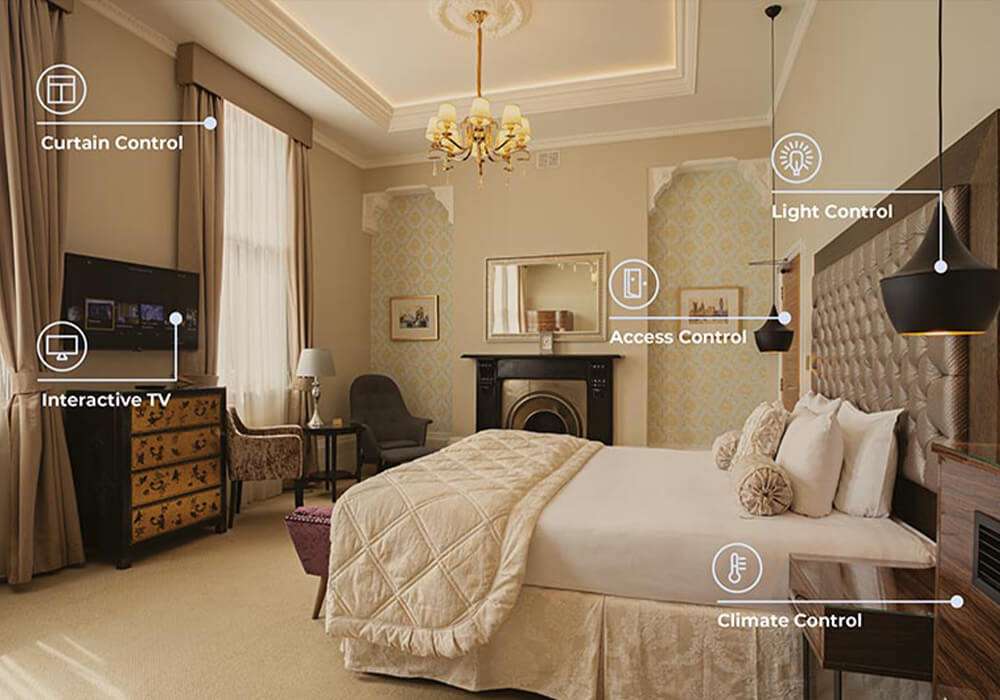
Step 3: Guests Enjoy Their Stay
When guests open the room door, the smart guest control system automatically activates the smart lighting, intelligent curtain system, air conditioning system, and ventilation system. It also starts background music, playing soothing tunes automatically.
Additionally, all smart devices in the room can be centrally controlled through the guest’s smartphone/room tablet/voice assistant, eliminating the need for multiple remote controls.

Step 4: Guests Self-Service Check-out
Guests can complete the check-out process with a single click through the hotel mobile app.
The online backend system allows for self-service payments, downloading payment receipts, and providing feedback on hotel services, among other functions.
Four Key Features of Smart Hotels
Intelligent Equipment for Fast, Convenient, and Efficient Service
Supported by the internet and information technology, smart hotels offer services such as online room selection, facial recognition check-in, self-service front desks, luggage delivery, and robot meal delivery.
These streamline service processes, save time, and provide guests with convenient and efficient check-in, stay, and check-out experiences.
Personalized Service to Meet Individual Customer Needs
Different customer groups have varying requirements for hotel rooms, dining, shopping, and entertainment facilities and services.
Smart hotels use intelligent equipment to gather customer preferences and interests, and segment and classify them accurately.
To provide different service combinations and product recommendations for different customer groups, catering to personalized and customized needs.
Digitized Operations and Management for Improved Efficiency
Through the use of Internet technology and big data, smart hotels utilize intelligent analysis and dynamic management of human, financial, and physical resources.
This optimization enhances hotel operations and management, effectively reducing resource and energy consumption.
Furthermore, these hotels achieve true energy efficiency by substituting intelligence for human labor, which reduces staffing requirements and labor costs.
Intelligent Service for Strong Safety and Risk Resistance
Smart hotels replace human services with intelligent services, allowing guest check-in and check-out to be entirely conducted online.
Services like delivery and housekeeping are also handled by intelligent robots, providing “contactless service” and minimizing contact between guests and staff.
This approach partially eliminates safety concerns for guests and enhances the hotel’s safety and risk resistance capabilities.
Case Study: Smart Hotel Examples and Technologies
Bluetooth Hotel Smart Locks
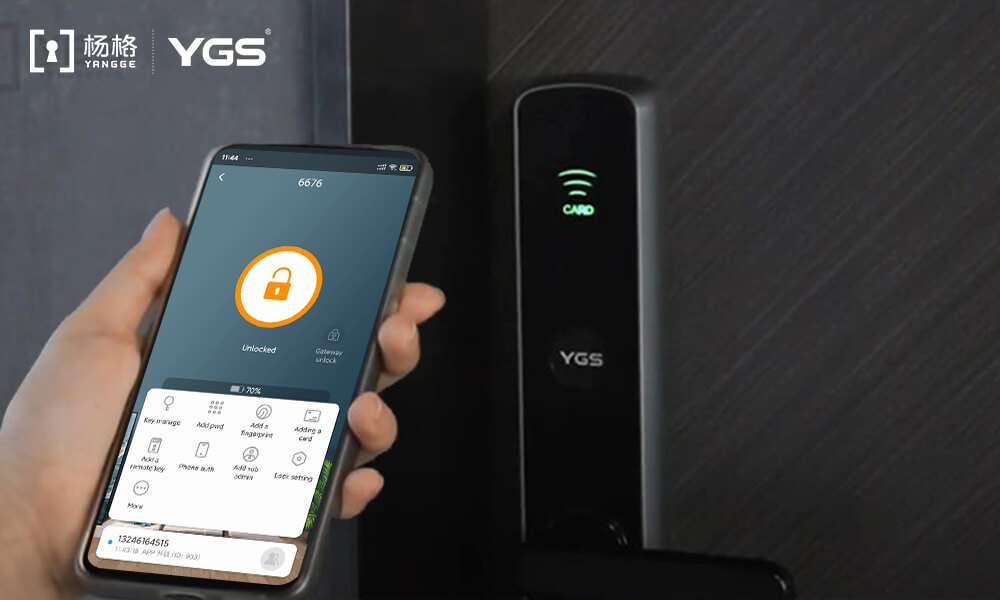
Bluetooth hotel lock technology is a modern hotel security system. It integrates Bluetooth technology to provide you with a safer, more convenient, and smarter door lock solution. Incorporated with a low-power Bluetooth module, this innovative door lock allows you to control smart locks from a mobile device.
Say goodbye to the hassle of traditional key cards and keys and embrace a more intelligent and convenient check-in experience.
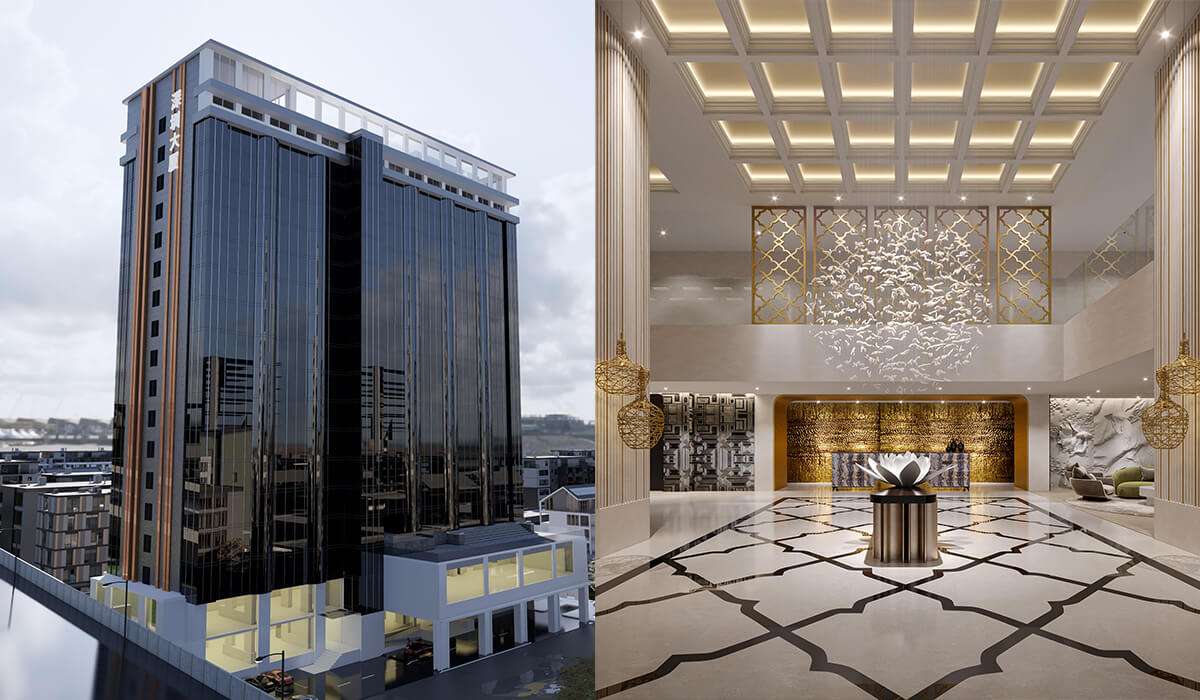
Recently, Wanda Jiahua and YGS Smart Lock have partnered to introduce high-level comfort and security to SZ Tower in Shenzhen. Here, you’ll find the latest in keyless and contactless check-in technologies. You no longer need physical keys because your phone can become your virtual room key.
Simply activate the Bluetooth function and bind your phone to your room first. Then gently approach the door, and the lock will automatically unlock, opening the door of convenience for you. Furthermore, with no room cards or keys, those who pretend to be cleaning staff won’t be able to enter, further enhancing your accommodation security.
AI and Robot Applications
With the continuous evolution of high-tech, artificial intelligence technology and robot applications are rapidly taking over the market. They are widely used in various fields, including manufacturing, medical manufacturing, and the service industry, bringing great convenience to people’s lives.
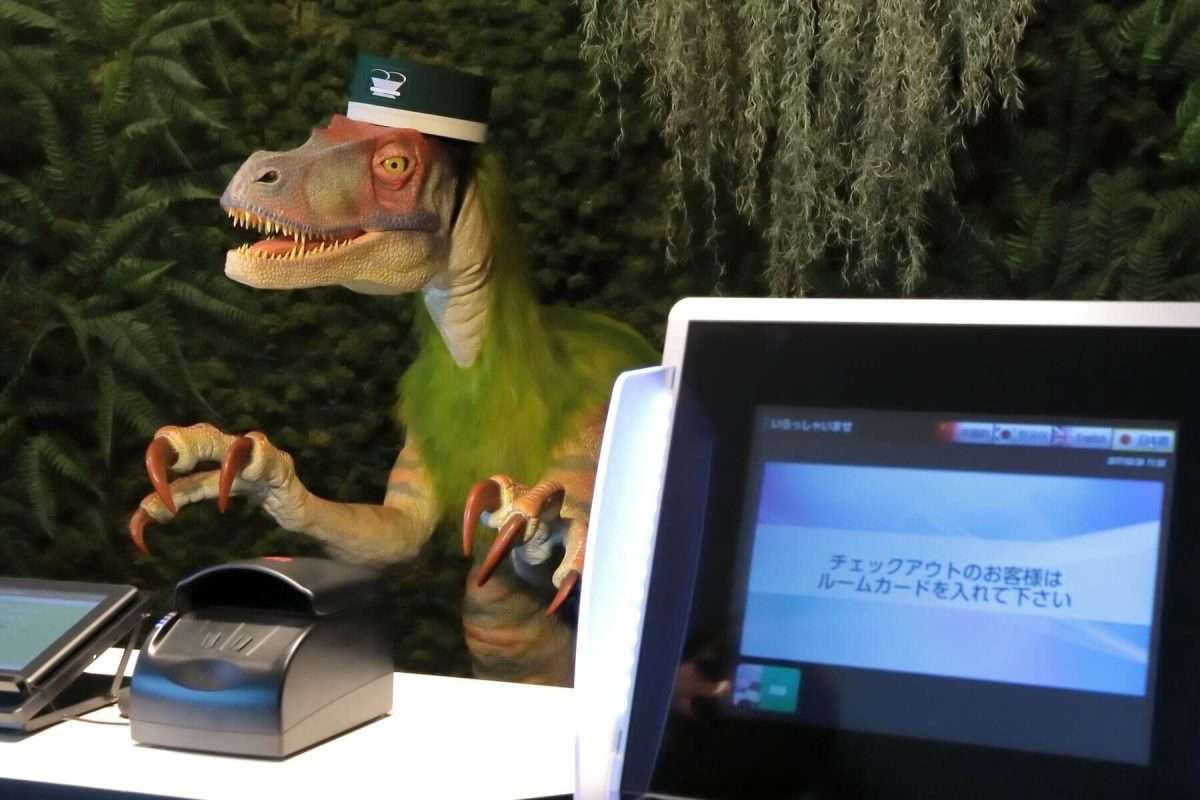
In Japan, the famous “Henn-na Hotel” is renowned for its unique hotel services and room facilities. The hotel is known for using robotic workers as frontline staff, providing guests with a unique and entirely new accommodation experience.
When you step into the “Henn-na Hotel,” you’ll be surprised to find that everything from luggage attendants, hotel receptionists, guides to porters are all robots. These robots can easily switch languages and communicate naturally with guests from different countries.
The self-check-in process enables guests to complete the check-in process efficiently and quickly without requiring human interaction, further enhancing the guest experience.
Additionally, each room is equipped with a voice-controlled butler robot that can perform various simple tasks, providing guests with additional convenience.
These innovative robot technologies not only make “Henn-na Hotel” a distinctive hotel but also reflect the positive role of modern technology in the hospitality industry.
Mobile Application
In this smartphone-centric era, the phone has evolved beyond just a communication tool. It has become a multifunctional device encompassing features such as payment, clock, shopping, news, and more.
Smart hotels have taken advantage of this trend by integrating hotel services into personal devices to better meet the accommodation needs of guests.
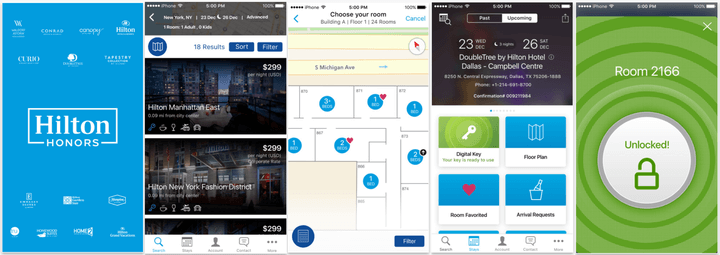
Take Hilton’s Hilton Honors as an example. Guests can easily download the hotel’s dedicated app on their smartphones. Through this app, they can complete digital check-in and select their own rooms.
Once the check-in is completed, they can even go directly to their rooms without additional hotel registration or waiting in line at the front desk. Within a suitable distance, they can easily unlock their room doors using the digital key function on their phones.
Through the hotel app, guests can also conveniently control room devices, request room service, extend their stay online, and make online payments, among other functions.
Throughout their stay, if they prefer not to have face-to-face contact with any hotel staff, they can achieve everything through this app. The intelligent hotel experience provides guests with a superior level of comfort and convenience as well as more professional service.
Infrared Sensing System
The infrared sensing system is a smart technology widely used in hotels and other places. It utilizes infrared sensors to detect and identify the heat and movement of objects, enabling automation control and management.
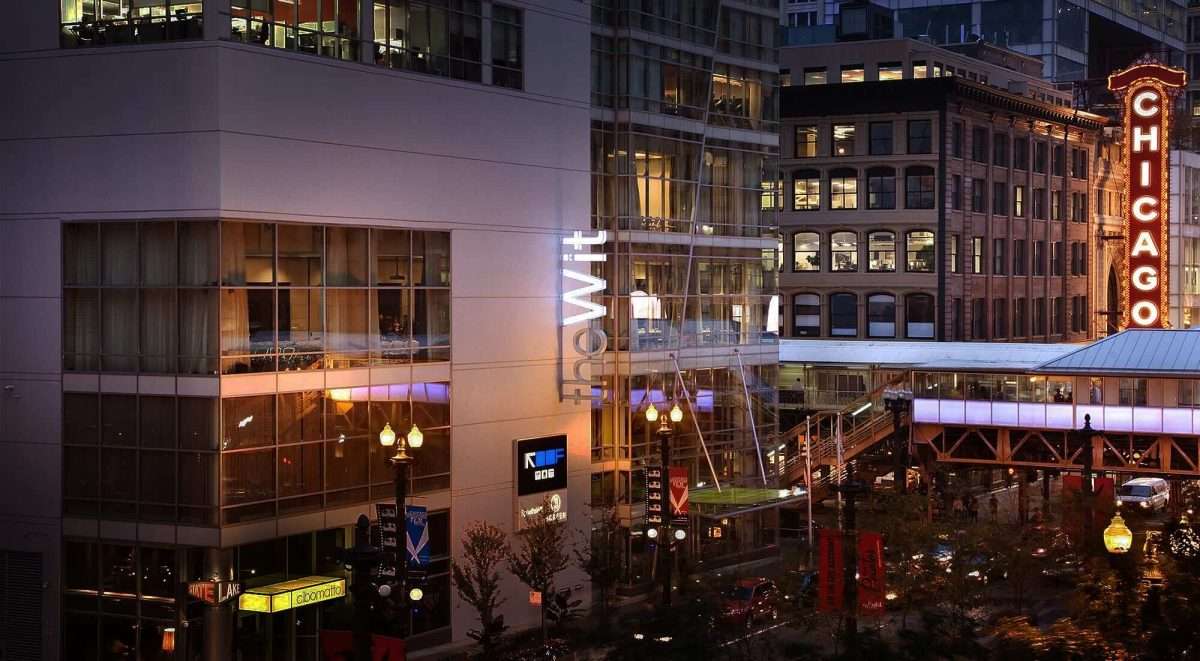
The Wit, located in Chicago, prides itself on its stylish and advanced features. Here, guests experience the convenience of cutting-edge technology. There is no need for manual temperature adjustments anymore. The hotel uses high-tech indoor temperature sensors that can instantly sense guests’ body temperatures.
Based on this temperature data, the system adjusts the air conditioning temperature and airflow in real-time, ensuring that the environment remains healthy and comfortable. This system is an innovative measure adopted by the hotel to provide ultimate comfort and convenience, ensuring guests’ utmost satisfaction.
Intelligent Voice Assistants
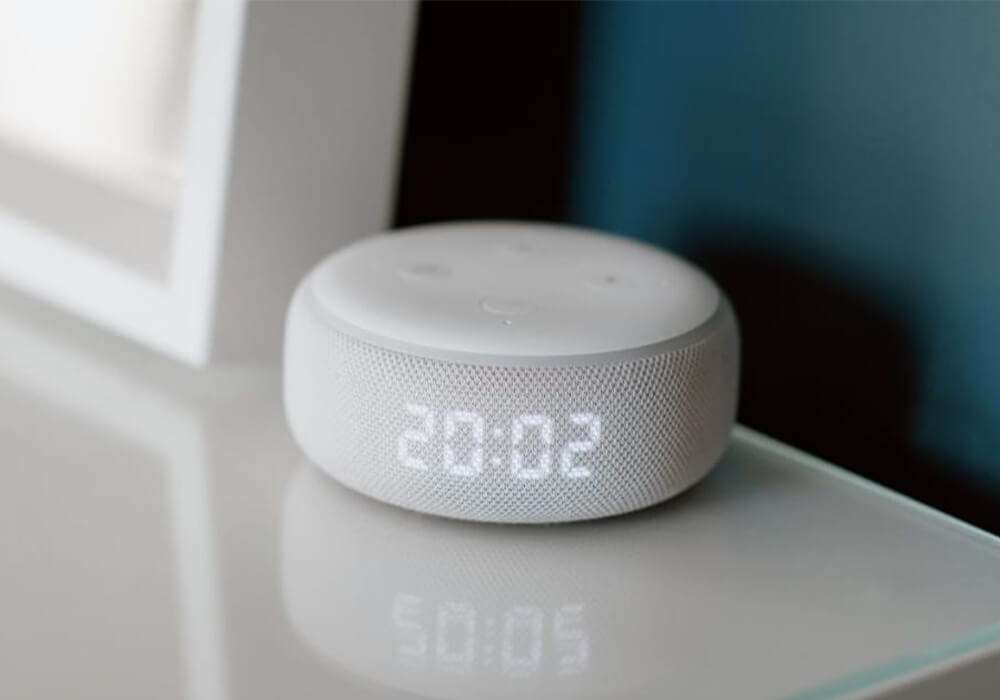
Intelligent voice systems are widely used in the hotel industry. It allows hotel guests to interact with hotel services and facilities through voice, enhancing customer experience and convenience.
Although voice control technology is sometimes seen as an uncommon means of communication, like having a conversation with an invisible entity, it must be acknowledged that having an interactive intelligent voice assistant is very practical when you wake up hot or cold in the middle of the night.
It is sometimes thought that voice control technology is an unusual way of communicating, like conversing with an invisible entity. But we must acknowledge that having an interactive intelligent voice assistant is very practical when you wake up hot or cold in the middle of the night.

The Best Western hotel group uses Amazon’s intelligent Bluetooth speaker, Echo Dot. It has built-in voice assistant–Amazon Alexa, making it not just a speaker but also an intelligent companion for conversation. Thus guests can easily control various facilities in their rooms and communicate with the hotel server through voice commands.
This advanced technology not only offers a personalized experience for hotel guests but also adds to the hotel’s professionalism and high-tech image. Guests no longer need to search for remote controls or make phone calls to contact hotel services. Everything can be accomplished through simple voice commands, improving the convenience and efficiency of the hotel.
Facial Recognition
As the hotel industry moves into the digital age, facial recognition technology has become a common practice, adding professionalism and rich experiences.
This technology eliminates the need for guests to fill out tedious forms or wait in lines at hotel front desks by automating check-in at the front desk. Instead, they can quickly complete the check-in process by standing in front of a facial recognition device.
Secondly, the introduction of facial recognition technology enhances the overall security of the hotel. Identifying guests’ facial features, effectively prevents unauthorized access to rooms or hotel facilities. Not only protects guests’ belongings but also elevates the overall hotel security, providing guests with a more confident stay experience.
Mitsui Fudosan Group has launched a new hotel brand, “Sequence.” It has implemented self-check-in and self-check-out services using the NEC facial recognition system. This innovative self-service model eliminates the traditional key approach, offering guests a contactless check-in experience. In the current global focus on hygiene and health, this self-service model is undoubtedly an attractive choice, reducing interpersonal contact and better meeting guests’ needs.
VR Technology
As the leading platform for immersive interactive experiences, VR is highly sought after. Currently, the integration of hotels and VR mainly focuses on two aspects: pre-stay VR interactive displays and post-stay VR scene experiences. Interactive displays emphasize consumer choice, and the experience scenes can be combined with products to expand hotel consumption.
With 3D VR technology, the Marriott Group creates a perfect “trial” scenario for guests. Guests can immerse themselves in hotel rooms through 360-degree and 3D virtual reality, experiencing the real room environment and tactile sensations. This technology breaks spatial boundaries, allowing potential customers to explore every corner of the hotel in a virtual world, thus making more confident decisions regarding their stay.
Future Hotel Trends and Beyond
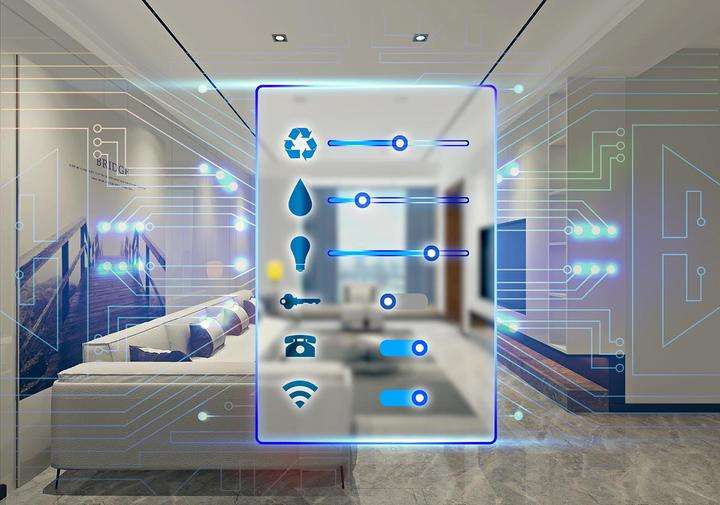
Digital Transformation
The hotel industry will continue to undergo digital upgrades, making full use of leading technologies to enhance service and management efficiency. Guests will experience seamless, barrier-free, touchless, and paperless digital services from booking, check-in, check-out to customer interactions. All these aspects will become more intelligent and convenient.
Personalized Services
Future hotels will focus more on meeting customers’ personalized needs. Big data analysis and artificial intelligence technology will further develop. Hotel guests will not only be able to easily customize room environments but also tailor services to their individual preferences. Through data analysis, hotels can understand customer preferences and provide personalized recommendations, services, and experiences, thereby increasing customer satisfaction and loyalty.
Automation Services
Automation and robotics technology will play a crucial role in areas such as front desk operations, room cleaning, and dining services. Replacing human labor and gradually diminishing the human element, resulting in significant cost savings. This not only enhances hotel efficiency but also enables more touchless services.
Networked Connectivity
Hotels will no longer be limited to specific geographical areas or markets. But will expand their reach through online travel agencies, social media, and collaborative platforms to attract more customers.
Similarly, guests will no longer be restricted to specific locations or times for booking or staying in hotels. They can browse, compare, select, book, and guest review various types of hotels anytime and anywhere through various online platforms.
Accommodation Security
Future smart hotels will employ advanced security technologies, including smart lock systems, access control systems, surveillance systems, and alarm systems. In addition to security measures against unauthorized entry, the hotel will include real-time capture, tracking, and recognition technologies, as well as SOS emergency buttons.
Diversified Development
Future hotels will not only serve as accommodation places but will also offer diversified services such as specialty dining, entertainment, and cultural activities to enrich guests’ hotel experiences while increasing the hotel’s revenue sources.
In summary, the future of hotels will be more digital, intelligent, and focused on customer personalization and safety. These trends will drive the continuous evolution and innovation of the hotel industry in response to changing market demands.
Online Enquiry Form
Related Blog
With more than 20 years of smart lock experience, YGS could provide a set of hotel door lock management solutions for your hotel business.
Uncover the Best Door Locks for Hotels -Find Your Ideal Fit!
Currently, the hospitality industry is experiencing an unprecedented boom in the era of fully opened travel. As hotels face intense competition, it has become crucial to elevate guest experiences and prioritize safety measures, particularly when it comes to door locks for hotels. This article aims to provide…
Unlock Hotel Room with Phone: Effortless Keyless Entry
In the digital age, technology has revolutionized various aspects of our lives, and the hospitality industry is no exception. One of the significant advancements in the hotel industry is the implementation of hotel keyless entry systems. This allows guests to unlock hotel room with phone, without keys…
How to Use Key Card in Hotel? Step-by-Step Guide
The use of hotel key cards can bring numerous benefits to both guests and the hotels, such as cost-effectiveness, enhanced security, improved efficiency, and convenience. Consequently, hotel room cards have become the primary unlock way in modern hotels. In this article, we will delve into…
Smart Hotel Technology: The Future of Hotel Stays
Today, with the constant development of modern technology, the smart internet era has penetrated all aspects of various industries. Especially in the hotel industry, traditional hotel management model is no longer suitable for modern hotel management needs. The emergence of…
Safe Stays in Smart Hotels: Embrace Contactless Room Service
As we all know, since 2020, COVID-19 has swept across the globe, with a particularly noticeable impact on industries including catering, tourism, and related services. The hotel industry has also faced significant operational pressures, and the prolonged…
Discover the Top Hotel Safety Devices for Secure Experience
Hotels are comprehensive service-oriented enterprises that provide accommodation, dining, entertainment, shopping, and other services. It serves as a living base for guests during travels, business trips, conferences, and other activities. For guests, the appeal of a hotel goes beyond comfortable…

